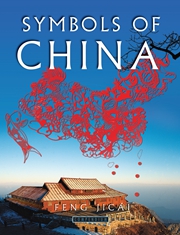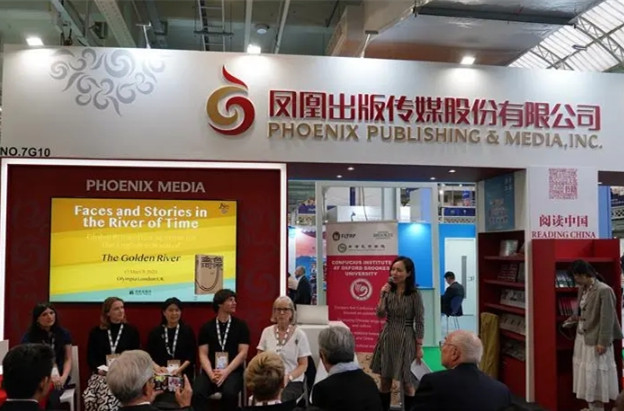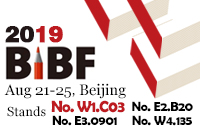PW Studio: Phoenix Publishing and Media Group
By Teri Tan (en.ppm.cn)
For Xu Hai, vice-president of Phoenix Publishing and Media Group (PPMG), being a big company comes with its own strengths. With its nine publishing houses, including Yilin Press and Jiangsu People's Publishing House, and 26 distinctive book brands—Cao Wenxuan Children's Literature Award, Obelisk, and Overseas Chinese Studies Series among them—PPMG has much to offer readers.
"We are like a big tree, better able to withstand the rain and storms," says Xu. "But to be a good publisher, we must also be able to see the small problems—in management and production processes, for instance—and solve them quickly in order to sustain our growth. We simply cannot afford to miss the forest for the trees when the publishing land- scape is constantly shifting in the face of emerging technologies and consumer preferences."
Headquartered in Nanjing, PPMG is the largest publishing and media group in the country, and has ranked among the top 12 on the Global 50 publishing list since 2019. Some five centuries ago, Nanjing was China's most important publishing center. It bore witness to the establishment of China's first literary academy in the year 438 and the completion of the world's largest encyclopedia, Yongle Dadian, in 1408. Today, it is the capital of Jiangsu Province, and in 2019 it became China's first UNESCO City of Literature.
"PPMG is right where history in academia and literature happened in China," says Xu. "We want to ensure that this publishing tradition continues by offering readers unique titles and masterpieces of our time and those that reflect the era we are in."
Like the famous Tang and Song poets and writers who lived, congregated, and honed their craft in Nanjing, numerous present-day Chinese literary stars have flocked to PPMG to publish their masterpieces. Among the contemporary voices are Han Dong (Capriccio on the Way to Buy Salt), Hu Xuewen (The Ode of Loong and Phoenix), Huang Beijia (I Want to Be Good), Liu Liangcheng (Bomba), Lu Min (Dinner for Six), and Su Tong (Another Life for Women). These volumes, chosen from more than 6,000 new publications released by PPMG annually, are part of the Jiangsu Literature Translated series, aimed at promoting Jiangsu literature and authors to over-seas readers.
Another series, Jiangsu Scholars Translated, offers such out-standing academic works from the province as Wang Xiaoxi's The Theory of Moral Capital, Xu Xiaoyue's Essentials of Chinese Humanism, and Zhou Xian's A Theoretical Journey Across Cultures.
Early this year, PPMG published Yang Jing's Foreigners Who Helped in China's Resistance Against the Japanese Aggression, a book marking the 80th anniversary of the end of World War II and China's victory over Japanese occupation. "The heroic actions of Edgar Snow and Henry Norman Bethune, for example, continue to inspire many generations across the country," says Xu.
Xu's team has just launched two major works. The first is Liu Liangcheng's epic novel Long Life, on the relationship between ancestors and descen- dants, past and future, and life's journey, bringing readers along from a village deep in the Gobi Desert to Suzhou and back through the Hexi Corridor. The second is Elegy of the Dying Township, a new novel written by the Mao Dun Literature Prize winner Su Tong after an 11-year hiatus. This work explores the intertwined fates of two families on opposite sides of Xianshuitang, viewing the labyrinthine adult world through a teenager's eyes.
Several big academic titles are particularly noteworthy, such as the upcoming release of Liu Yingsheng's The Collision and Fusion of Civilizations: A Brief History of the Silk Road and the recently published A Complete Collection of Chinese Grotto Music Images, by Liu Wenrong.
But PPMG isn't just about original works. The publisher has translated many thought-provoking books, including Diana Athill's Instead of a Letter (34,000 copies sold since its July publication); John Scalzi's Love, Death + Robots: Volume Four (23,000 copies sold since May); Maggie Bickford's Ink Plum: The Making of a Chinese Scholar-Painting Genre; and Norbert Sachser's The Human in the Animal.
"With so many topics out there, we need to stay focused," says Xu. "We must be selective yet innovative, picking topics and titles that are both trendy and thought-provoking, because PPMG is all about nourishing the reader's mind and spirit."
-

Symbols of Jiangsu (Pocket Edition)
Non-FictionSymbols of Jiangsu (Pocket Edition) selects the most representative and symbolic Jiangsu special cultural resources.
-

Symbols of China
Humanities & Social Science; Non-FictionSymbols of China examines those things that make China Chinese.



